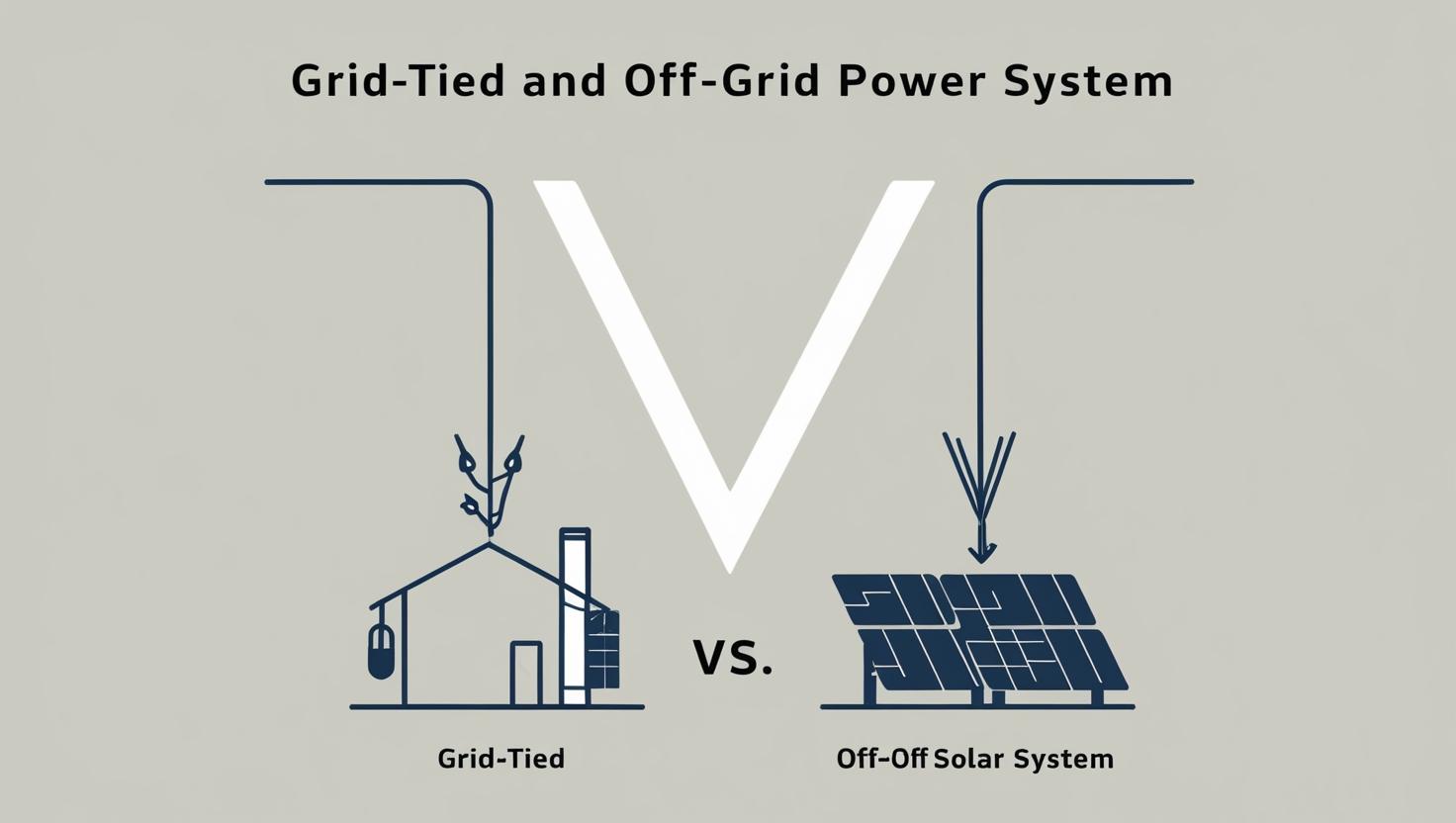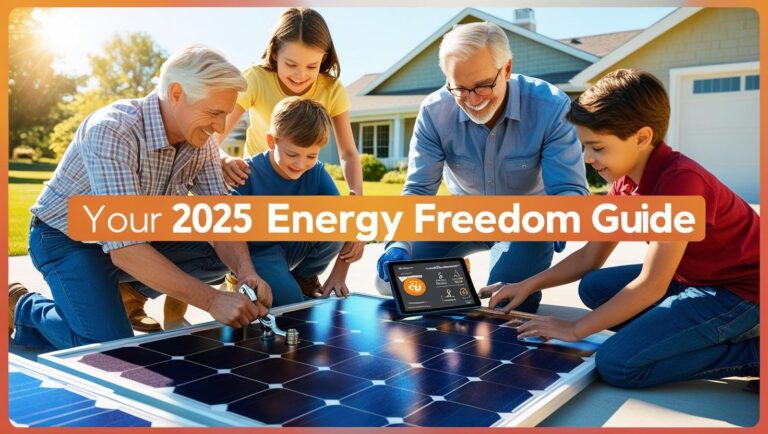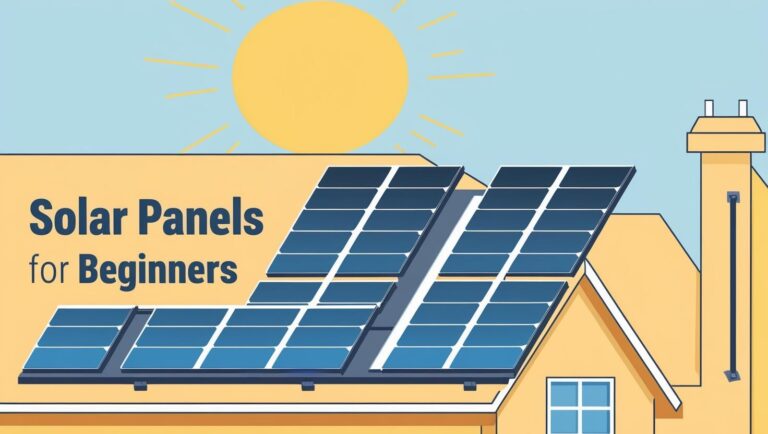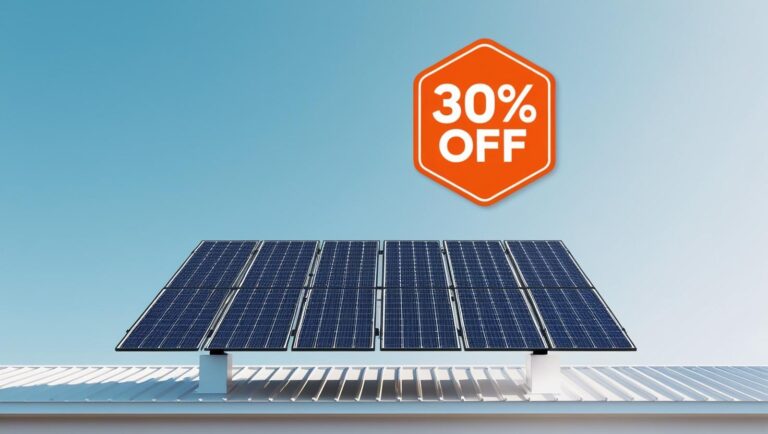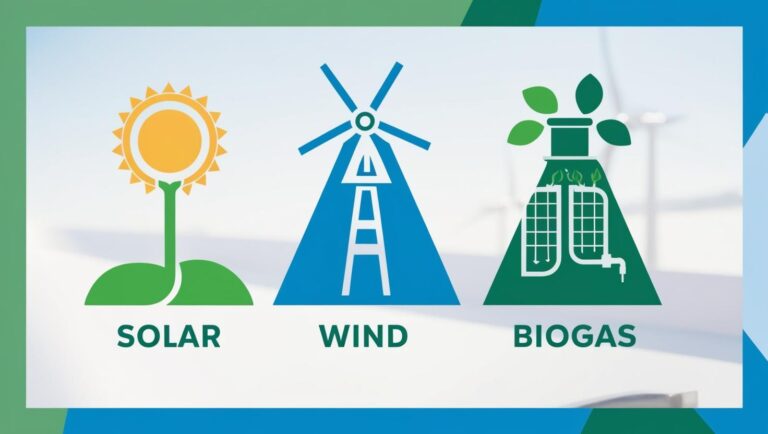Off-Grid vs Grid-Tied Solar: Which Should You Choose?
🌞 Solar energy is a game-changer for homeowners, but choosing between grid-tied and off-grid systems can be tricky. This guide outlines the advantages and disadvantages, as well as the key differences.—so you can decide what’s best for your energy goals.
(Want to start with the basics? Check out our Solar Panels for Beginners Guide.)
1. Grid-Tied Solar: Stay Connected, Save Money
How It Works
Grid-tied systems connect to your local utility grid, which creates energy back and forth.
They:
✅ Use solar panels to power your home.
✅ Return excess energy to the grid (earning credits via net metering).
✅ Draw power from the grid when solar isn’t enough (e.g., at night).
Pros
✔ Lower upfront cost (no batteries needed).
✔ Net metering savings (reduce or eliminate bills).
✔ Reliable backup (grid acts as a safety net).
Cons
✖ No power during outages (shuts off for safety—unless you add batteries).
✖ Dependent on utility policies (net metering rules vary).
🔗 Learn more about net metering policies by state.
2. Off-Grid Solar: Total Energy Independence
How It Works
Off-grid systems rely 100% on solar + batteries (and sometimes a backup generator). They:
✅ Operate independently from utilities.
✅ Require large battery banks to store energy.
✅ Need careful energy management.
Pros
✔ No electricity bills (ever!).
✔ Works in remote areas (no grid connection needed).
✔ Immune to grid failures (self-sufficient).
Cons
✖ High upfront cost (batteries are expensive).
✖ Requires lifestyle adjustments (energy rationing in cloudy weather).
🔗 Considering batteries? Read our DIY Home Energy Guide for tips.
3. Key Comparisons: Grid-Tied vs. Off-Grid
| Factor | Grid-Tied | Off-Grid |
|---|---|---|
| Cost | Lower upfront (10k–10k–20k) | Higher (30k–30k–50k+) |
| Reliability | Grid-dependent | Self-sufficient (if designed well) |
| Maintenance | Minimal | Batteries require upkeep |
| Best For | Urban/suburban homes | Remote locations, preppers |
(See HTML section for a prettier table!)
4. Hybrid Systems: The Middle Ground?
A hybrid system combines the best of both:
- Grid-tied + battery backup (power during outages).
- Partial independence without going fully off-grid.
(We’ll cover hybrids in-depth in a future post!)
5. Which One Should You Choose?
Ask yourself:
- Budget: Can you afford batteries?
- Location: Urban (grid-tied) or rural (off-grid)?
- Goals: Savings vs. total independence?
Still unsure? Start with our Solar Panels for Beginners Guide.
| Factor | Grid-Tied | Off-Grid |
|---|---|---|
| Cost | $10k–$20k | $30k–$50k+ |
| Reliability | Grid-dependent | Self-sufficient |
| Maintenance | Minimal | Battery upkeep |
How Grid-Tied vs. Off-Grid Solar Works
🔌 Grid-Tied System
1. Solar panels generate DC electricity
2. Inverter converts DC → AC for home use
3. Excess power flows back to the grid
4. Grid power supplements when solar is low
☀️ Solar → ⚡ Inverter → � Home
⚡ Excess → 🏢 Utility Grid
🌙 Night: 🏢 Grid → 🏠 Home
🏡 Off-Grid System
1. Solar panels generate DC electricity
2. Charge controller regulates batteries
3. Battery bank stores energy
4. Inverter powers home appliances
5. Generator (backup for cloudy days)
☀️ Solar → ⚡ Controller → 🔋 Batteries
🔋 Batteries → 🏠 Home (24/7)
☁️ Cloudy: ⛽ Generator → 🏠 Home
Frequently Asked Questions
► Do grid-tied systems work during power outages?
No—unless paired with a battery. Standard grid-tied systems automatically shut off during outages to protect utility workers.
► How long do off-grid solar batteries last?
Lead-acid: 5-7 years. Lithium-ion: 10-15 years. Proper maintenance can extend battery life.
► Do I need permits for off-grid solar?
Yes, often stricter than grid-tied. Requirements vary by location but typically include electrical, building, and sometimes environmental permits.
► Can I use off-grid solar in a city?
Possible but challenging due to space constraints. You’ll need room for batteries and may face zoning restrictions. Grid-tied with battery backup is often more practical.
► What happens if my off-grid batteries run out?
You’ll experience a blackout unless you have a backup generator. Proper system sizing and energy management are crucial to prevent this.
► How does weather affect grid-tied vs. off-grid?
Grid-tied: Minimal impact – the grid compensates. Off-grid: Requires oversizing (typically 20-30% more panels/batteries) to handle cloudy days.
► Which system has better resale value?
Grid-tied systems typically appeal to more buyers. Off-grid systems may attract niche buyers but often don’t increase home value proportionally to their cost.
► Can I add batteries to my grid-tied system later?
Yes, but you may need to upgrade your inverter to a hybrid model. It’s usually cheaper to install battery-ready equipment initially.
► How much roof space do I need for off-grid?
Typically 200-400 sq ft for an average home (3-5kW system), plus space for equipment. More is needed in cloudy climates.
► Is off-grid solar worth the extra cost?
Only if: 1) You’re in a remote location, 2) Grid connection is prohibitively expensive, or 3) You prioritize complete energy independence over cost savings.
